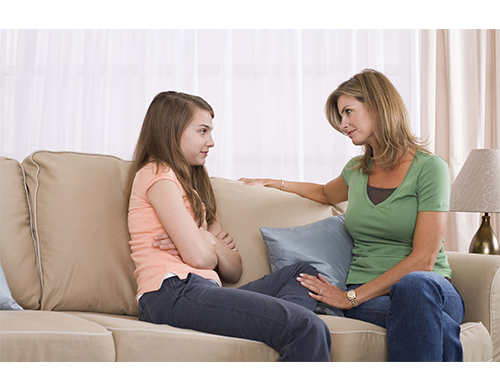- Book Reviews THE SHOCK OF THE LIGHT by Lori Inglis Hall
- Book Reviews THE VIOLIN MAKER’S SECRET by Evie Woods
- Book Reviews THE DANGER OF SMALL THINGS by Caryl Lewis
- Book Reviews NONESUCH by Francis Spufford
- Book Reviews LADY TREMAINE by Rachel Hochhauser
- Book Reviews THE ASTRAL LIBRARY by Kate Quinn
- Book Reviews THE HARD LINE, A Gray Man Novel (Gray Man series, Book 15) by Mark Greaney
- Children's Book Reviews THE NUTCRACKER by E.T.A. Hoffman
- Children's Book Reviews RANGE: HOW EXPLORING YOUR INTEREST CAN CHANGE THE WORLD by David Epstein
- Children's Book Reviews CHICKA CHICKA BOOKS: I LOVE DAD AND TRICKA TREATA

Talking to Teens about Alcohol
Disclosure: We attended an event sponsored by Heineken to discuss the impact of parent-child communication about alcohol. All opinions are our own.
Young people often don’t fully understand the risks and effects of alcohol consumption, which makes discussing responsible drinking with teenagers imperative for parents of youth.
Heineken sponsored a discussion with Drs. Karen Soren and Julia Potter, who shared findings from their recent research study on the impact of parent-child communication about alcohol, funded by Heineken.
These two doctors are experts in their field pertaining to this topic. Karen Soren, MD, Associate Professor of Pediatrics and Public Health (Population and Family Health) at Columbia University Medical Center, and the Director of Adolescent Medicine at the of New-York Presbyterian Morgan Stanley Children’s Hospital. Julia Potter, MD, recently completed her Adolescent Medicine Fellowship at Columbia University Medical Center and will be starting as an Assistant Professor of Pediatrics at Boston University Medical Center this October, where she will pursue clinical research in parent-teen communications.
The study was conducted by the doctors from December 2014 through January 2015, through which they explored the impact of parent-teen communication about alcohol use on underage problem drinking. 310 sets of parents and young adults (ages 21-23) were asked to complete a retrospective survey focusing on young adults’ drinking behaviors, parents’ knowledge of these behaviors, as well as their relationships and types of alcohol communication.
The main findings of the study were that parental approval of underage drinking is associated with increased odds of problem drinking. If either parent or young adult expressed discomfort discussing alcohol, there were increased odds of problem drinking.
With these findings in mind, 95 percent of parents report discussing alcohol use with their young adults. Not surprisingly, young adults report more discomfort than their parents in discussing alcohol. The majority of the conversations started at ages 12-17.
When it comes to parental disapproval, 97 percent of parents disapprove of their children drinking to intoxication, while 60 percent disapprove of children trying even one sip of alcohol. While having one sip does not sound too threatening, it does show approval, which according to the study can lead to increased odds of problem drinking. Problem drinking can include serious physical risks, such as getting into a fight, or having had unplanned sex while drunk.
Photo Credit: Getty Images
-
 THE SHOCK OF THE LIGHT by Lori Inglis Hall
THE SHOCK OF THE LIGHT by Lori Inglis Hall
-
 THE VIOLIN MAKER’S SECRET by Evie Woods
THE VIOLIN MAKER’S SECRET by Evie Woods
-
 THE DANGER OF SMALL THINGS by Caryl Lewis
THE DANGER OF SMALL THINGS by Caryl Lewis
-
 NONESUCH by Francis Spufford
NONESUCH by Francis Spufford
-
 LADY TREMAINE by Rachel Hochhauser
LADY TREMAINE by Rachel Hochhauser
-
 THE ASTRAL LIBRARY by Kate Quinn
THE ASTRAL LIBRARY by Kate Quinn










